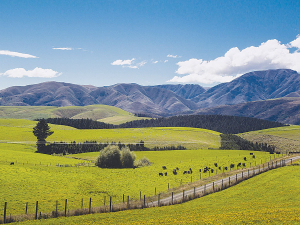David Anderson reflects on the agri-sector as he steps down from his editor’s role.
OPINION: In 1991, freshly graduated from a journalism course – after a period farming, shearing and working in the meat processing industry – I walked into the offices of Rural News. I was lucky enough to secure a job as a junior reporter as the fledgling publication that was in the process of changing, with the aim of tackling the real issues affecting the country’s all-important rural sector.
My first editor, the indomitable Ron Clark, was a true newspaper man who believed that NZ’s farming sector lacked serious coverage of the issues that it faced, and that Rural News was the perfect outlet to do this. Backed all the way by publisher Brian Hight, what was created then still exists today: Covering the good, bad and ugly of NZ’s agribusiness sector – without fear or favour – just reporting on the news happening in the rural sector.
Ironically, my rural journalism career began with a new National-led government picking up the pieces of a shattered economy and severely depressed rural sector hit by major reforms, in the aftermath of six years of a Labour-led government. Labour had been voted in on a high promise of fine ideas, great words and led by a charismatic leader, who ended up quitting and running halfway through its second term.
Around the same time, farmers were unhappy with the producer boards and the fact they could not even vote directly for their own representatives. They changed the system, believing it would see much better voter turnout and higher quality representation. Fast forward to today, and a mere 12% of red meat producers bothered to vote at the latest Beef+Lamb NZ annual meeting.
Another big change was the painful formation of Fonterra from the proliferation of numerous dairy co-ops dotted throughout the country into one of the biggest and most successful dairy companies in the world.
It is impossible to summarise more than 30 years of this dynamic sector’s events and happenings in a few words. However, what I can say is that things will continue to change, farmers will adapt and the industry will survive and thrive.
It’s been an absolute privilege to have played a small role in NZ’s most important and vibrant sector.



















